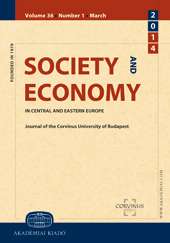The development of the Chinese household registration system and its influence on the current economic development of the country
The development of the Chinese household registration system and its influence on the current economic development of the country
Author(s): Matej Buzinkai, František ŠkvrndaSubject(s): Micro-Economics, Agriculture, Economic history, Economic policy, Rural and urban sociology, Economic development, Migration Studies
Published by: Akadémiai Kiadó
Keywords: hukou system reform; rural-urban migration; Lewisian turning point; household consumption;
Summary/Abstract: In the paper we analyze the development of the Chinese household registration system, the hukou system, since its establishment in the 1950s until today and its influence on the economic development of the PRC. Surplus labour force was released from agriculture when the household responsibility system was introduced. Its allocation into more productive sectors of the economy was conditioned by the reform of the hukou system, which served to prevent the migration of rural population to cities. The hukou system is discriminatory for rural-urban migrants and currently hinders the effective utilization of labour. Furthermore, the relaxing of the system would most likely lead to an increase in consumption levels among Chinese households.
Journal: Society and Economy. In Central and Eastern Europe ǀ Journal of the Corvinus University of Budapest
- Issue Year: 36/2014
- Issue No: 2
- Page Range: 199-215
- Page Count: 17
- Language: English

